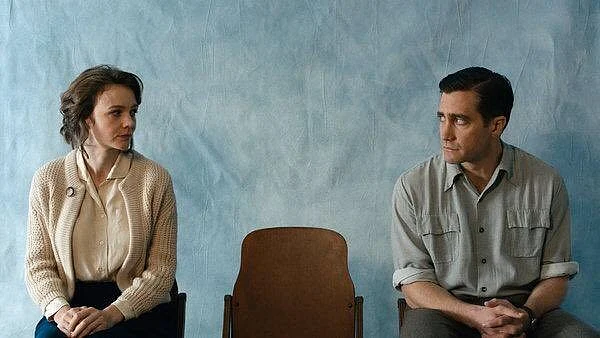Set during the fall of 1960, based on on the book by Tom Ford, Wildlife is moving tale of a crumbling marriage between Jerry (Jake Gyllenhaal) and Jeannette (Carey Mulligan), and their 13-year-old son Joe (Ed Oxenbould) being witness to it. Director Paul Dano, an actor himself, brings a melancholic tone to the film. So you’re witnessing something tragic but it looks lyrical.
Wildlife starts off on a positive note with Jerry - an extremely affable guy working at the golf club charming most of their customers while Jeannete looks after their house and son willingly and happily. Great Falls, Montana where they stay, barely has any people, but the family is happy in their own world. But life isn’t perfect for too long and conflicts appear when Jerry loses his job for being too ‘friendly’. It’s a conflict that most people deal with, particularly the middle-class because money forms the crux of so many things in our life. Jerry decides to work for a low wage, fighting wildfires till the snow comes out - much to the anger and dismay of his wife and son.
The languid pace is interrupted by sudden bursts - like when Jerry and Jeannette being yelling at each other at the same time, when Jerry decides to fight wildfires or when Jeannette slaps her son after she finds out that he is spying on her. Jerry’s work doesn’t allow him to be in touch with his family and that’s when the disintegration begins. Jeannette finds other interests and attractions like a new man who gives her a job while their son works part-time as a photographer’s assistant.
You see their relationship crumble when Jeanette begins to get more brazen about her affair, she’s barely spending any time with her son. The reason the film feels so subtle is because you don’t really see Joe expressing himself about the situation. You only know of his turmoil when you see that he’s never prepared enough for his classes - his homework always incomplete. In your teens, you often can’t completely comprehend what’s happening and so want to escape. That explains why there are several shots of Joe and his friend running across fields, playing.
Wildlife also makes a comment on the class divide in America. The older man Jeannette is having an affair with candidly says, “I’m rich today because of other people’s incompetence.” His implication was that the poor didn’t have it in them to make it big, and that was the general capitalist attitude and to an extent still is.
Dano constructs each frame beautifully. It’s not opulent, in fact it’s quite sparse but goes with the languid pace of the film. There are are wide shots of Montana to show us just how minimal the population of that place is. You also see Jeanette’s evolution through her clothes - from dressing conservatively in dull colours to then wearing bright coloured dresses that accentuate her frame.
Wildlife works largely because of it’s performances. Ed Oxenbould is perfect as the quiet but tentative Joe. When you’re young you always look at your parents as a unit and not as individuals who can’t probably stay with each other, and he reflects that feeling beautifully. As a man fed up with life and looking for something more (going into the wild acting as a metaphor) Jake Gyllenhaal delivers a heartbreaking performance. You understand where he comes from, and yet detest the fact that he puts himself over his family - an existential crisis most people go through. But the beating heart of the film is Carey Mulligan as Jeannette. I’ve always enjoyed her work since An Education, but here she has an incredible graph.
Mulligan’s character goes from being this housewife trying to make her family happy to someone who becomes more self-centred. My favourite scene in the film is when she goes to an office looking for a job and goes on to list her abilities one by one, even when one of the staff members repeatedly says no. When she finally relents, you see the joy on Mulligan’s face, it’s just priceless.
Wildlife is heartbreaking but also extremely real. There were moments where I felt like the emotions could have been a little more heightened considering the impact of the conflict. But that’s not how life is, we measure our emotions because you foresee its implications and don’t want to rock that boat too much. If you have the patience to get through that, give it a watch.
(At The Quint, we question everything. Play an active role in shaping our journalism by becoming a member today.)
